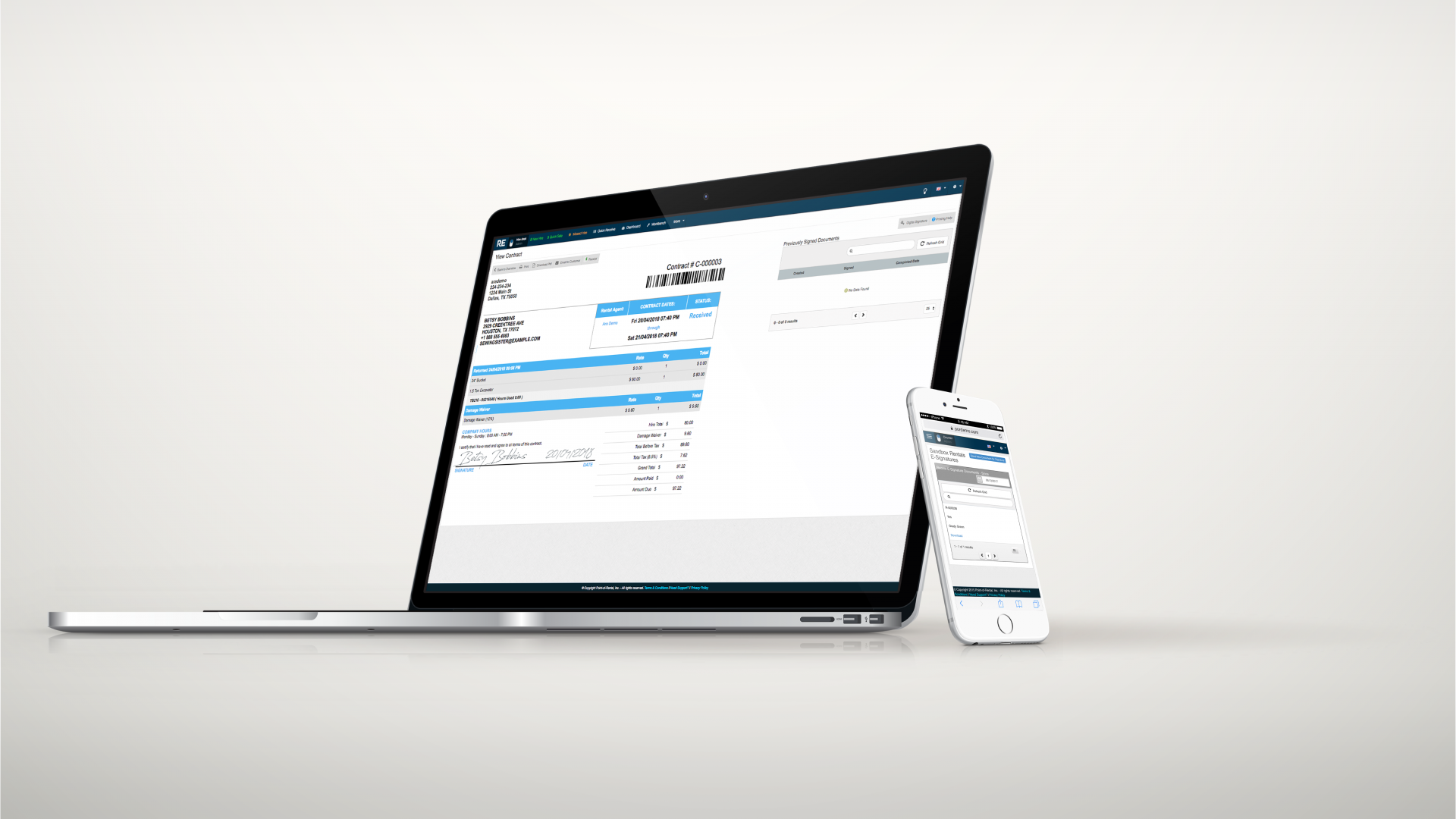The world’s business gets done digitally, and the rental counter is no exception. Electronic signature capturing devices and PDFs have replaced paper contracts and terms and conditions sheets. Easily searchable databases have replaced Byzantine filing systems in back rooms. These processes have saved rental businesses countless hours and resources by reducing printing costs, filing time, time spent searching for contracts, and waiting for signatures.
While electronic signatures seem new, they’ve been around in some form since at least the 1800s, with telegraph signatures having been enforced as legally binding. Similarly, faxes, with electronically transmitted signatures, have been accepted since the 1980s. Electronic signatures are simply the most recent evolution of this process as we make it easier to get documents signed.
But how do they work? Why do we trust them with the lifeblood of our business – our contracts? What should an electronic signature software provide?
What makes a valid electronic signature?
In a rental business, you’re already taking customer information. It’s stored in your system, along with your inventory information and the contracts that tie the two together. When you send an electronic signature request, either to a kiosk at your counter or via email to the customer’s record, you’re fulfilling two of the legal requirements for a valid electronic signature.
So how do companies fulfill the other two requirements?
On contracts, key data, like the name of the signatory, how they were identified, and the IP address and location where it was signed, is encoded in a QR code-like block. If someone tries to change the accompanying data, it’s easily cross-referenced with the encoded data in your system and an altered contract would be identified so you (and the legal system) can reject it.
How can I be sure my electronic signatures will be accessible in the future?
Being able to easily obtain a signature doesn’t mean much if you’re not able to find one when you need it during a dispute. Electronic signatures are actually more secure in many ways than ink – there aren’t many companies that make copies of every signed document and store both original and copied signatures in two separate locations, one of which is heavily guarded by security experts. But that’s standard protocol for electronic signatures, which are hosted with redundancy on cloud servers like Amazon Web Services (AWS). Security is handled in multiple layers, with the cloud server’s security team, web application firewalls, and third-party audits continuously checking to ensure the process is secure.
Why don’t traditional electronic signature solutions work well for rental companies?
The first electronic signature solutions were created for payment processors, which already have their own secure connections, gateways, servers, etc., or for lawyers and real estate companies, which are high-value contract, low-volume businesses, especially compared with rental stores. A busy rental store can require more signatures in a week than one of these businesses would need in a year. Point of Rental’s customers were having an issue using these electronic signature products because their pricing models didn’t work for them. As software experts, we realized we had the opportunity to resolve that issue, and released the industry’s first electronic signature solution, Rental E-Sign.
My pen-and-paper system works just fine for me. Why should I use electronic signatures?
If saving money on paper and printer maintenance and avoiding the hassle of filing your contracts doesn’t seem worth your while, perhaps this will: Offering electronic signatures makes your customers happier, too. According to Nielsen tracking, the average adult in the U.S. spends more than 3.5 hours per day on a mobile device. By offering electronic signatures instead of requiring them to sign at the office or use a fax, you’re making it easier for them to do business with you.
And who doesn’t want to work with someone who makes their job easier?
This article first ran in March’s issue of Rental Management magazine. To read the full article and more „Tech Talk,“ click here. If you’re interested in your own electronic signature solution, Rental eSign is designed for rental businesses moving toward paperlessness.

